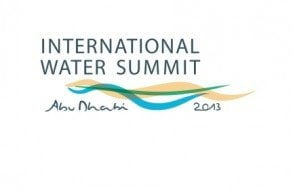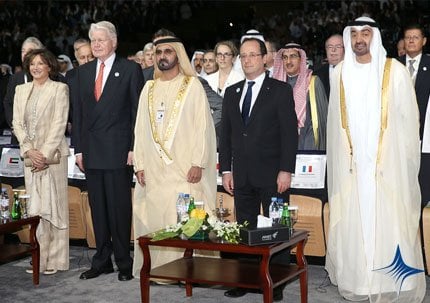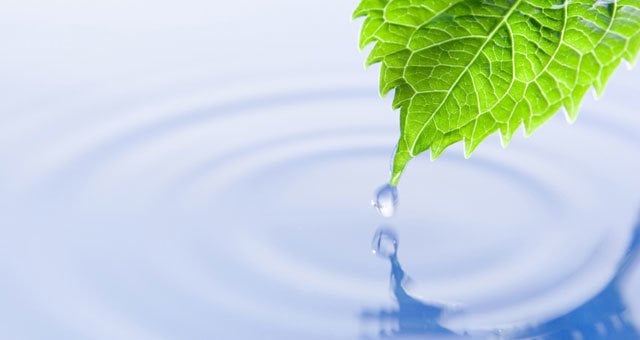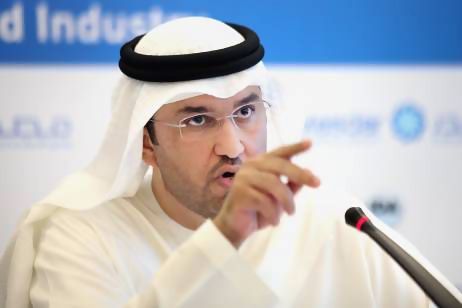Mehmood Ul Hassan Khan
The leadership and government of the United Arab Emirates are taking all possible measures to tackle the looming danger of water scarcity. Water security has become mantra of every government around the globe, especially in the Gulf Cooperation Council (GCC) and Middle East region. It is one of the key strategic assets for human survival on the planet. It is an effective tool of achieving micro or macro socio-economic goals around the globe and Arabian Gulf too. From ancient civilizations to modern times of to-day, water has had been remained driving force for collaboration, integration and socio-economic development. It has been one of main reasons for stability, sustainability, peace, and the last but not the least green revolutions throughout the human history.
International Water Summit (2013)
Most recently, an international Water Summit was held during the Abu Dhabi Sustainability Week in Abu Dhabi. Technologists, scientists, decision makers and researchers were participated the said summit. The International Water Summit was a major new global platform for promoting water sustainability in arid regions. It provided the unique opportunity to network and do business with global leaders, municipalities, utilities, contractors, consultants and top decision makers from the public and private sectors within the Middle East and around the globe. The Ministerial Panel gathered a distinguished group of policy makers, entrepreneurs, innovators and visionaries from around the world to create an international think-tank dedicated to sustainable development during the said international water summit (IWS) 2013.
An international conference was held on January 16-17 that provided a platform for exchange of ideas, presentation of cutting-edge research, benchmarking of successful strategies and insight into the thoughts and vision of water industry leadership and technical innovators. During IWS an exhibition was staged and which showcased state-of-the-art products and solutions by water industry experts from around the world.
Main topics discussed/highlighted during the ISW are given below as:
a) Global and local water governance and cross boundary cooperation
b) The water challenges presented to arid and water scarce regions
c) Water and energy for sustainable development
d) Water network efficiency
e) Tariff, Tax and Transfer
f) Supply and demand management
g) Desalination
h) The water energy nexus
i) Energy Conservation and cost efficiency
j) Providing water solutions to rural communities
k) Water resource classification, allocation and management
l) Clean technologies and renewable energy integration into water production
m) Water production, technology and processes to positively impact environment
n) Public and private partnerships to promote water industry diversity and effectiveness
o) Future challenges affecting water availability
p) Reducing consumption, recycling and reuse
Importance of water
Water is indeed blood vessel for the life on earth which in endangered due to many socio-economic, geo-political and geo-strategic reasons. It was warned during the summit that more urgent policy measures must be taken as the population of the GCC grows. In addition to this according to international water summit organizers the population of the Middle East would reach from 360 million to more than 600 million by 2050 so, sincere efforts must be initiated of allocating the precious resource i.e. blue or liquid gold, water.
UAE successful Pilot Project
According to the Abu Dhabi Water and Electricity Company (January, 2013), each person in the UAE uses 350 litres of water a day, compared to the 160 to 180 litres recommended by the World Health Organisation. Moreover, ground-water supplies that sustain agriculture in the emirate are dwindling. In UAE, a successful pilot project using tertiary-treated wastewater to irrigate crops will be initiated to produce an estimated 6 million gallons a day. Other potential uses for recycled water, including sustaining whatever parks and other green spaces that can be feasibly maintained in an arid environment, should be followed.
Demand-Supply Parity
The executive director of the International Water Resources Association says “by 2030, we will withdraw 20 to 30 per cent more water than our existing reliable supplies.” He shared that re-use was crucial. “The Colorado River is reused six to seven times before reaching the sea.
The Global Water Intelligence’s Re-use Markets says 4,000 trillion litres is extracted a year. Only 10 per cent of that is collected and only seven trillion litres, or a small fraction of 1 per cent of the total, is treated. Globally, agriculture accounts for 83 per cent of water used. But with the world population expected to rise from seven billion people to nine billion by 2050, so will demand. It was warned that allocation of water for human, industrial and agriculture consumption should be rationalized as soon as possible for protecting our present and securing our next generations.
Masdar’s announcement
During the Sustainability Week, International Water Summit Masdar, the Emirate’s clean-energy company announced to build the UAE’s first large-scale water desalination plant to be powered by renewable energy. Masdar is looking for interested technology partners for three trial projects to run until the end of 2015, before construction on the plant begins the year after. Dr Sultan Al Jaber, the company’s chief executive said “The aim of the pilot programmes is by 2020 to have a large-scale, commercially viable water desalination plant powered by renewable energy whether it is solar, geothermal or other sources, or maybe even a combination.”
Abu Dhabi’s desalination plants
According to the official data the UAE relies on desalination plants for more than 90 per cent of its potable water. In 2011, Abu Dhabi’s desalination plants produced more than 2,700 million litres of water. Moreover, Abu Dhabi relies on combined-cycle electricity and water plants, powered by natural gas, which are responsible for almost a third of the UAE’s greenhouse gas emissions.
“Energy-intensive water desalination will continue to play its role, yet we have to start thinking about innovative ways of utilising technologies that will allow us to harness natural resources, like solar, wind, geothermal, to desalinate water,” he added.
Masdar’s Priorities
Masdar says it will cover half of the cost of the plant and its partners will cover the other half, but no figure has been announced. Forty-eight companies have already been shortlisted for the programme and their ideas will be evaluated by a technical committee of experts from Masdar, UAE University, the Environment Agency, Abu Dhabi and the Abu Dhabi Water and Electricity Authority.
Many countries in the region especially, United Arab Emirates (UAE), Saudi Arabia, Kuwait and Qatar have already initiated many diversified but integrated policies/programs to cope this emerging serious problem.
It has now been labeled as blue gold due to its precious nature. It has multiplier effect on different sectors of production and survival. It has been intertwined with human health, energy, environment and the last but not the least, socio-economic development.
UAE and especially, Abu Dhabi shows great commitment for new desalination capacity. To meet the challenge, large-scale dual purpose power/desalination plants are built to reduce the cost of production of electricity and water.
Abu Dhabi diversified policy initiatives and Agriculture Sector
Razan Al Mubarak, secretary general of the Environment Agency Abu Dhabi said agriculture is the largest consumer of ground water and effective measures have been taken to increase its efficiency. She said one option was to update an existing law from 2006 that gives the agency the right to oversee ground-water wells. The law was followed by a decree banning the drilling of any new wells. The said law could be amended to give the agency authority over how much water users were allowed to take from each well and to deal with the illegal sale of ground water by well-owners, she added.
She pinpointed that “In areas of Abu Dhabi such as Al Ain, Al Shweib and Liwa, 50 years ago groundwater was easily accessible,” she said. “The groundwater was between half a metre and a metre below the surface and wells could be dug by hand.” She warned that overuse of the water for agriculture, forestry and the oil sector has tapped a substantial amount of the reserves and at some places ground water depletion is so significant that the water table has dropped by as much as five metres a year.
Depletion of water levels
In 2011, total demand for water in Abu Dhabi was 3,313 million cubic metres. Two thirds, 67 per cent, of this demand was filled by ground water reserves, 29 per cent from desalinated water and 4 per cent from recycled water. From 2009 to 2011 the amount of water used in irrigation fell by 7 per cent, possibly as a result of growing fewer water-intensive crops such as Rhodes grass. However, more needs to be done and the agency has made extending the life of Abu Dhabi’s groundwater reserves a strategic priority.
In addition to possible changes to the law, other approaches supported by the agency involve supporting agriculture in greenhouses and the use of hydroponic systems, which can be as much as 80 per cent more water efficient she explained.
Inefficient use of potable water also has serious financial implications. In 2011, it cost on average Dh10.43 to produce a cubic metre of water through desalination. Emiratis receive water free, and expatriates are charged Dh2.2 a cubic metre. The difference is covered by the Government.
UAE/ Abu Dhabi
Strategic Measures
(a) Building of World’s largest underground reservoir
It has started to build the world’s largest underground reservoir, with 26,000,000m3 of desalinated water. It will store enough water for 90 days when completed. The reasoning is that the UAE is now wholly dependent on desalination to survive.
(b) Underground artificial water reserve
It will construct an underground artificial water reserve, a man-made aquifer storing desalinated water deep underground in an economical and environmentally sound manner to be used in case of emergency. The strategic reserve, on which construction started earlier this year, will increase Abu Dhabi’s reserve capacity from three days (the current reserve capacity) to 90 days.
(c) Policy Guidelines
Moreover, the Abu Dhabi Declaration issued by the 31st Summit of the Supreme Council of the GCC further links water security with energy and food security, and calls for collaborative action to change regional water consumption patterns.
Practical Measures
(d) Installation of water filters
It has planned to install water filters, which would enable consumers to reduce water consumption by up to 50 percent throughout the Emirate by 2013. Now schools are competing with each other to reduce water wastage. In Abu Dhabi, which is building Masdar, the $20bn futuristic city to be run on renewable energy, the environment agency is spearheading a massive drive to reduce water use. More than 2,000 mosques in Abu Dhabi have been fitted with water-saving devices, which are saving millions of gallons of water a year when people wash before prayer. Other UAE states are expected to follow.
(e) Use of renewable/alternative energies mix in desalination of water
Construction of smaller dams would improve rain capture and groundwater recharge, and the use of cloud seeding to enhance rainfall. Moreover, water and wastewater treatment would be turning point in the region. The regional water industry has set to spend an estimate of USD 50 Billion to expand its wastewater, water reuse and service water projects in 2011.
Suggestions
(a) Think globally, act locally by slowing population growth, drastic reduction of pollution, better supply and demand of available water resources along with water conservation.
(b) Declare water security a national interest by gradually imposing reasonable tariffs (e.g. Egypt, the Alexandria Water Company introduced a clever tariff system, the Dubai Electricity and Water Authority introduced a slab tariff system a few years ago. The more water people consume, the higher the slab category they fall into, resulting in a higher cost for water).
(c) Paradigm shift is immediately needed in irrigation system especially use of freshwater in agriculture sector in these countries. Abu Dhabi government has already taken a concrete step by introducing necessary legislation.
(d) Introduction of modern irrigation techniques, plastic greenhouses, better crop rotation and other up-to-date technology and practices. Masdar has become sign of inspiration and regional leaders by using renewables mix in the region and around the globe. It has lots of functional plans and projects to overcome this looming problem.
(e) Launch of massive public campaigns about the importance of water, and its optimal utility through education. UAE government and especially Abu Dhabi emirate use to launch public awareness campaigns throughout the country for optimal conservation of water resources.
(f) Bring healthy changes in eating (lesser rice) and the lifestyles (say no to swimming polls).
(g) Develop local food stuff (drought resistant) as these will reduce the need for water.
(h) Develop ecological agriculture adaptable to climate change conditions. Masdar and other related departments are doing their combined efforts to introduce environment friendly agriculture in the country.
(i) Provide financial support to protect the interests of farmers and increase their active participation in alternative energy usages.
(j) Improve the development of new technologies in the agricultural sector.
(k) Develop hybrid crop varieties that use less water to produce the same amounts.
(l) Instead of looking at investments in major exporter nations such as the US, the EU and Australia, the GCC has tended to focus on countries that are geographically close to the GCC.
(m) Desalination drive must be generated through alternative energy mix with dual purpose.
(n) More focus should be on fish farms, a mangrove plantation and fields to produce salicornia, a crop which is also known as samphire, a salad-like vegetable often served with fresh fish. (an advance stage in UAE, Masdar Institute of Science and Technology).





Dear Sirs,prompt me please who I can pass it strategically important for UAE scientific discovery.I discovered the enormous underground lake of quality drinking-water in UAE.Measuring with Qatar.I can specify his location and depth of the boring drilling.He will last the several hundred years of the continuous use.Sincerely, Professor -researcher, discoverer,Colonel,Dr.Vladi S.Pen.. dr.pen@ojooo.com